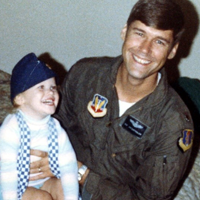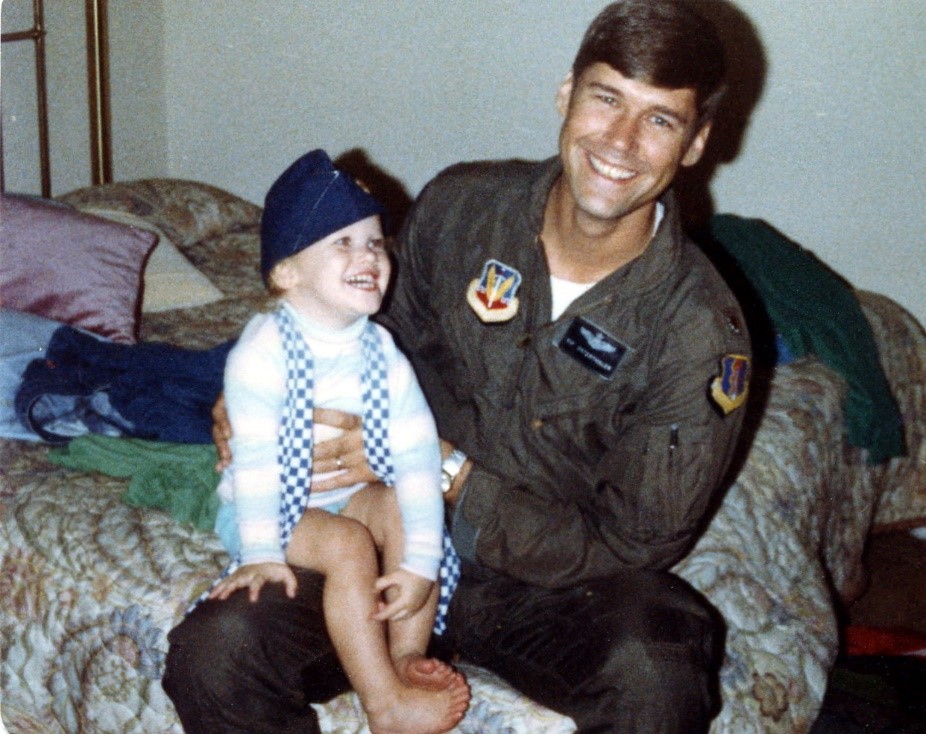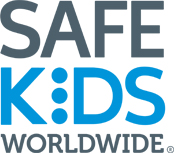Defensive Driving and Child Passenger Safety

My Dad is a retired Air Force Brigadier General, and over the course of his 28-year military career he taught countless pilots how to fly fighter jets. His favorite airplane, the F-15, weighs 45,000 lbs., can fly 1,875 mph, and costs about $80 mil. And, unlike driving a car, mistakes tend to have all-or-nothing consequences. There are no minor fighter jet accidents.
With this background, you may be surprised that my Dad teaching me how to drive is one of my favorite memories of growing up. Mom gripped the seat and could barely conceal her terror whenever my foot even grazed the gas pedal, but my Dad was cool as a cucumber, like he had been preparing his whole life to teach a stubborn teenage girl how to drive. Here are the three lessons that I remember most:
On getting frustrated when I did something wrong:
- What he said: “Krista, people aren’t born knowing how to drive a car.”
- Why it matters: Driving a car may be an essential skill for modern life, but unlike how to breathe or eat, it’s not an innate skill that humans are born with. Getting yourself where you need to go in a car – and doing so without injuring oneself or others - is a set of skills that must be learned. The muscle memory that enables us to react quickly and appropriately to avoid a crash must be practiced. The habits, like checking your mirror and blind spot before you switch lanes or slowing down when you see brake lights ahead, are established only through time and experience on the road. However, as the mom of a 2-year-old, I can tell you that “driver’s ed” really begins the minute a toddler can observe how Mom and Dad behave behind the wheel. Unlike driving a car, internalizing and mimicking adult behaviors is a survival skill that we are born with. So now, I’m doing my best to remember that every time I’m behind the wheel, there is a future stubborn teenaged girl in a 2-year-old’s body sitting back there, watching, and learning.
On defensive driving:
- What he said: “You have to learn how to be a defensive driver because no matter how safe you are on the road, you can’t control what the other drivers around you are doing.” He also said, “if you are truly being a defensive driver, you can avoid an accident 99% of the time.”
- Why it matters: We often hear the word “defensive” in a negative way, as in, “every time I try to give him constructive criticism he just gets so defensive!” However, being defensive in the context of driving is positive! The bottom line is you can’t control what others do on the road. Defensive driving is simply accounting for the wide range of judgment, skillsets, and distractions among not only our fellow drivers, but pedestrians, bike and scooter riders, runaway pets, and anyone or anything else you may encounter on or near the road. What he was trying to tell me is that as a defensive driver, I am not only accountable for my own actions on the road, but because I will experience the consequences of others’ behaviors, I need to be proactive about those as well.
On speed:
- What he said: “This is not Top Gun. There is no ‘need for speed’. There is nowhere you need to be that’s more important than your life, or someone else’s life.”
- Why it matters: This one is easy. The faster you’re going, the less time you have to react when something sudden happens, and the longer it takes to stop. So, the likelihood of having a collision and the amount of damage caused both go up the faster you are going. Besides, speeding is illegal for a reason. Speed limits are determined by very smart people who analyze how cars react on certain roads under certain conditions.
Now Dad is “Opa” to my two kids, ages 5 and 2, and when I first became a Mom in 2014 I got to teach him something for once! A lot of things about parenting has changed between the 1980s and today, but here is one of the most important: Having a kid these days means thinking about and planning for how they will ride in cars for the first decade of their lives, if not longer. Nowadays we know that car seats and booster seats significantly improve the chances that our babies and kids will survive a car crash, so they will need a special seat for any and all car trips for ten or more years.
Dad may not have thought much about car seats and booster seats when I was little, but he sure does now with his grandkids. And with the other things, I think he taught me the right stuff!

This blog was written by Krista Osterthaler.
